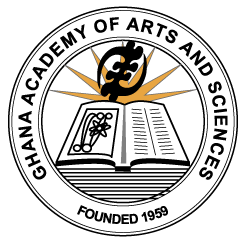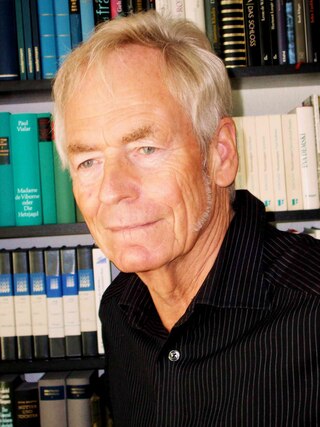Related Research Articles

The American Association for the Advancement of Science (AAAS) is a United States–based international nonprofit with the stated mission of promoting cooperation among scientists, defending scientific freedom, encouraging scientific responsibility, and supporting scientific education and science outreach for the betterment of all humanity. AAAS was the first permanent organization established to promote science and engineering nationally and to represent the interests of American researchers from across all scientific fields. It is the world's largest general scientific society, with over 120,000 members, and is the publisher of the well-known scientific journal Science.

The American Meteorological Society (AMS) is a scientific and professional organization in the United States promoting and disseminating information about the atmospheric, oceanic, and hydrologic sciences. Its mission is to advance the atmospheric and related sciences, technologies, applications, and services for the benefit of society.

Theodore Nicholas Gill was an American ichthyologist, mammalogist, malacologist, and librarian.

The Royal Society Te Apārangi is a not-for-profit body in New Zealand providing funding and policy advice in the fields of sciences and the humanities. These fundings are provided on behalf of the New Zealand Ministry of Business, Innovation and Employment.
Research Corporation for Science Advancement (RCSA) is an organization in the United States devoted to the advancement of science, funding research projects in the physical sciences. Since 1912, Research Corporation for Science Advancement has identified trends in science and education, financing many scientific research projects.
The Edinburgh Geological Society (EGS) was founded in 1834 in Edinburgh, Scotland, with the aim of stimulating public interest in geology and the advancement of geological knowledge. It was a time of debate and controversy surrounding the emerging science of geology and Edinburgh was one of the centres of this debate, which is why the Society is among the oldest of the Scottish scientific societies.

Stephen P. Hubbell is an American ecologist known for his work on tropical rainforests, theoretical ecology, and biodiversity. He is a professor emeritus at the University of Georgia and the University of California, Los Angeles.

Fellowship of the American Association for the Advancement of Science (FAAAS) is an honor accorded by the American Association for the Advancement of Science (AAAS) to distinguished persons who are members of the Association. Fellows are elected annually by the AAAS Council for "efforts on behalf of the advancement of science or its applications [which] are scientifically or socially distinguished".
George Philip Wells FRS was a British zoologist and author. A son of the author H. G. Wells, he co-authored, with his father and Julian Huxley, The Science of Life. A pupil at Oundle School, he was in the first class to learn Russian as a modern language in a British school. He accompanied his father to Soviet Russia in 1920, acting as his Russian translator and exchanging ideas with Russian zoology students. He won an entrance Exhibition to Trinity College, Cambridge, where he became Senior Scholar in his first year of residence.

The Pakistan Academy of Sciences, is a learned society of sciences, which described itself as "a repository of the highest scientific talent available in the country."
Martin John Spencer Rudwick is a British geologist, historian, and academic. Rudwick is an emeritus professor of History at the University of California, San Diego and an affiliated research scholar at Cambridge University's Department of History and Philosophy of Science. His principal field of study is the history of the earth sciences; his work has been described as the "definitive histories of the pre-Darwinian earth sciences". Rudwick was an early scholar to critique the conflict thesis regarding religion and science.
The Royal Zoological Society of New South Wales (RZSNSW) was formed in Sydney, New South Wales, Australia in 1879 as the New South Wales Zoological Society. A Royal Charter was granted in September, 1908, leading to a change to the current name on 10 February 1909. It publishes the scientific journal Australian Zoologist

The Ghana Academy of Arts and Sciences (GAAS) is a learned society for the arts and sciences based in Accra, Ghana. The institution was founded in November 1959 by Kwame Nkrumah with the aim to promote the pursuit, advancement and dissemination of knowledge in all branches of the sciences and the humanities.

Jörg-Peter Ewert is a German neurophysiologist and researcher in the field of Neuroethology. From 1973 to 2006, he served as a university professor in the Faculty of Natural Sciences at the University of Kassel, Germany.
The Society for the Advancement of Economic Theory abbreviated as SAET is a non-profit membership society founded to "advance knowledge in theoretical economics and to facilitate communication among researchers in economics, mathematics, game theory, or any other field which is potentially useful to economic theory." Membership includes economists, mathematicians, game theorists, and other individuals with interests in economics based on rigorous theoretical reasoning.
Les Kaufman is an evolutionary ecologist specializing in the biology and conservation of aquatic ecosystems. He has special expertise in coral reef biology, the evolution and ecology of tropical great lakes fishes, and ecosystem-based management of marine resources.
Pakistan Association for the Advancement of Science (PAAS) is a scientific organisation based in Pakistan. Headquartered in Lahore, the organisation was founded in December 1947 soon after the independence of Pakistan, and is among the oldest and premier science organisations in the country. Its aim is the promotion and development of science in the country, as well as to provide a forum for scientific meetings, and facilitate the publication of scientific research papers. Since 1949 the Pakistan Association for the advancement of science has published Pakistan Journal of Science (PJS).

Founded in 1924, the American Society of Parasitologists comprises a diverse group of about 500 scientists from academia, industry, and government involved in the study and teaching of the scientific discipline of parasitology. Society members contribute to the development of parasitology as a discipline, as well as to primary research in behavior, biochemistry, ecology, immunology, medicine, molecular biology, physiology, systematics, and other related fields of science.
Frank H. Farley is a humanistic psychologist and a past president of the American Psychological Association (APA) and the American Educational Research Association (AERA). He teaches at Temple University and has been a fellow or a leader of several scholarly societies. He has published research on a wide range of topics, from risk-taking personalities to men who visit massage parlors.
Yolanda Gil is a Spanish-born American computer scientist specializing in knowledge discovery and knowledge-rich intelligent user interfaces at the University of Southern California (USC). She served as president of the Association for the Advancement of Artificial Intelligence (AAAI), and chair of the Special Interest Group on Artificial Intelligence (SIGAI) for the Association for Computing Machinery (ACM). Gil was appointed to the National Science Board in 2024.